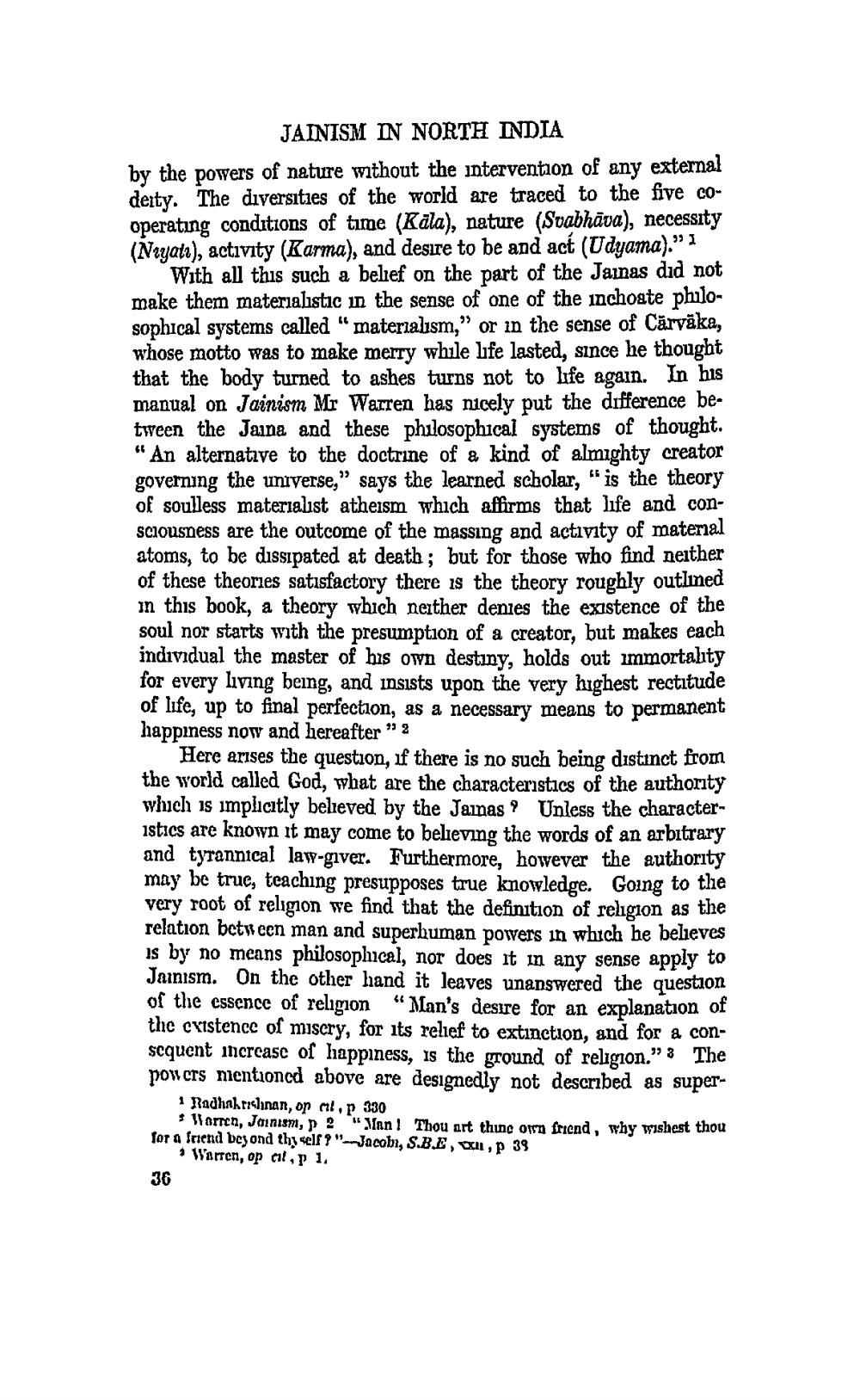________________ JAINISM IN NORTH INDIA by the powers of nature without the intervention of any external deity. The diversities of the world are traced to the five cooperating conditions of time (Kala), nature (Svabhava), necessity (Nyata), activity (Karma), and desire to be and act (Udyama)." 1 With all this such a belief on the part of the Jainas did not make them materialistic in the sense of one of the inchoate philosophical systems called "materialism," or in the sense of Carvaka, whose motto was to make merry while life lasted, since he thought that the body turned to ashes turns not to life again. In his manual on Jainism Mr Warren has nicely put the difference between the Jaina and these philosophical systems of thought. "An alternative to the doctrine of a kind of almighty creator governing the universe," says the learned scholar, "is the theory of soulless materialist atheism which affirms that life and consciousness are the outcome of the massing and activity of material atoms, to be dissipated at death ; but for those who find neither of these theories satisfactory there is the theory roughly outlined in this book, a theory which neither denies the existence of the soul nor starts with the presumption of a creator, but makes each individual the master of his own destiny, holds out immortality for every living being, and insists upon the very highest rectitude of life, up to final perfection, as a necessary means to permanent happiness now and hereafter" ? Herc arises the question, if there is no such being drstinct from the world called God, what are the characteristics of the authority which is implicitly believed by the Jainas Y Unless the characteristics are known it may come to believing the words of an arbitrary and tyranntcal law-giver. Furthermore, however the authority may be truc, teaching presupposes true knowledge. Going to tlie very root of religion we find that the definition of religion as the relation between man and superhuman powers in which he believes is by no means philosophical, nor does it in any sense apply to Jainism. On the other hand it leaves unanswered the question of the essence of religion "Man's desire for an explanation of the existence of miscry, for its relief to extinction, and for a conscquent increase of happiness, is the ground of religion." The powers nientioncd above are designedly not described as super 1 Radha rahanan, op al, p 330 + Morten, Jainism, Inn! Thou art thing or friend, why wishest thou for a friend beyond thy self?"-Jacobi, S.B.E, OK, Warren, op cit, 39 i indim dom starts with the which nezther




